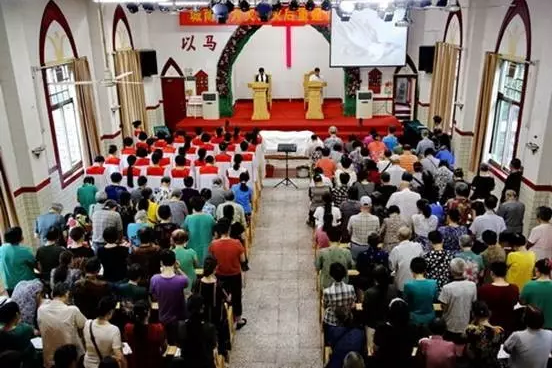A 7.0-magnitude earthquake struck Jiuzhaigou, a remote area in southwest China's province of Sichuan on Tuesday, causing 20 deaths and around 175 injuries. Just a few hours later, a 6.6 magnitude quake hit the northwestern part of Xinjiang at a depth of 11 km (6.8 miles).
The earthquake news was widely spread on WeChat. Lots of Christians prayed for the victims, hoping that more people could be saved and evacuated.
However, a few Christians published articles claiming that non-Christians encounter disasters and accidents due to their unbelief while Christians survive thanks to their faith. Citing "similar" examples, they called on people to convert. In fact, the move failed to make people believe in the gospel while tarnishing the Christian reputation and disgracing the name of the Lord.
So pay attention to the three following things Christian shouldn't say after a disaster:
Calamities come upon them because of idolatry.
This is the most popular opinion among the Chinese Christian community: idolaters meet their due reward because of their unbelief in the Lord. This type of article reaches the same conclusion: believing in the Lord can prevent diseases and avoid disasters.
However, disasters have never been absent in human history. For example, Antioch, a significant town in the early church, was struck by a powerful earthquake on May 29, 526. It resulted in about 250,000 to 300,000 deaths and contributed to the decline of the church of Antioch. It showed that people suffer troubles even if they are Christians. Our bodies dying is a law of nature after the Fall and nobody can surpass it.
So this kind of false speech cannot serve evangelism, yet leavs an impression of coldness and insanity to the world.
They suffer retribution because they sin.
Some "Christians" believe that people are punished by disasters due to their sins. Actually disasters are not necessarily the retribution for their sins in that death entered the world ever since we humans fell into sin. Both Christians and non-Christians experience troubles.
As it is written,
"All share a common destiny-the righteous and the wicked, the good and the bad, the clean and the unclean, those who offer sacrifices and those who do not.
As it is with the good,
so with the sinful;
as it is with those who take oaths,
so with those who are afraid to take them.
This is the evil in everything that happens under the sun: The same destiny overtakes all. The hearts of people, moreover, are full of evil and there is madness in their hearts while they live, and afterward they join the dead."(Ecclesiastes 9:2-3)
Moreover, we may not be more virtuous or do more good deeds than victims of disasters. As a matter of fact, those holding that people get punished quickly for their sins are worse than many victims.
As the book of Luke points out,
"Now there were some present at that time who told Jesus about the Galileans whose blood Pilate had mixed with their sacrifices. Jesus answered, 'Do you think that these Galileans were worse sinners than all the other Galileans because they suffered this way? I tell you, no! But unless you repent, you too will all perish. Or those eighteen who died when the tower in Siloam fell on them-do you think they were more guilty than all the others living in Jerusalem? I tell you, no! But unless you repent, you too will all perish.'" (Luke 13:1-5)
The occurrence of earthquakes indicates the end of the world.
Affected by extreme eschatology, a large percentage of Christians greatly hype the message proclaiming the end of the world when a disaster takes place.
Eschatology accords with Christian faith, but don't be melodramatic about it. People never know the exact time of Jesus' second coming. It is a mystery. So don't panic after disasters.
Eternal life has been assured since we have accepted Jesus Christ as our savior. In the face of great sufferings, what we need to do is to read the Bible, pray, gather together, and serve the Lord. Obey the Lord's teachings, preach the gospel, and love one another in Christ.
(The author is Christian from Fujian.)
-Translated by Karen Luo












